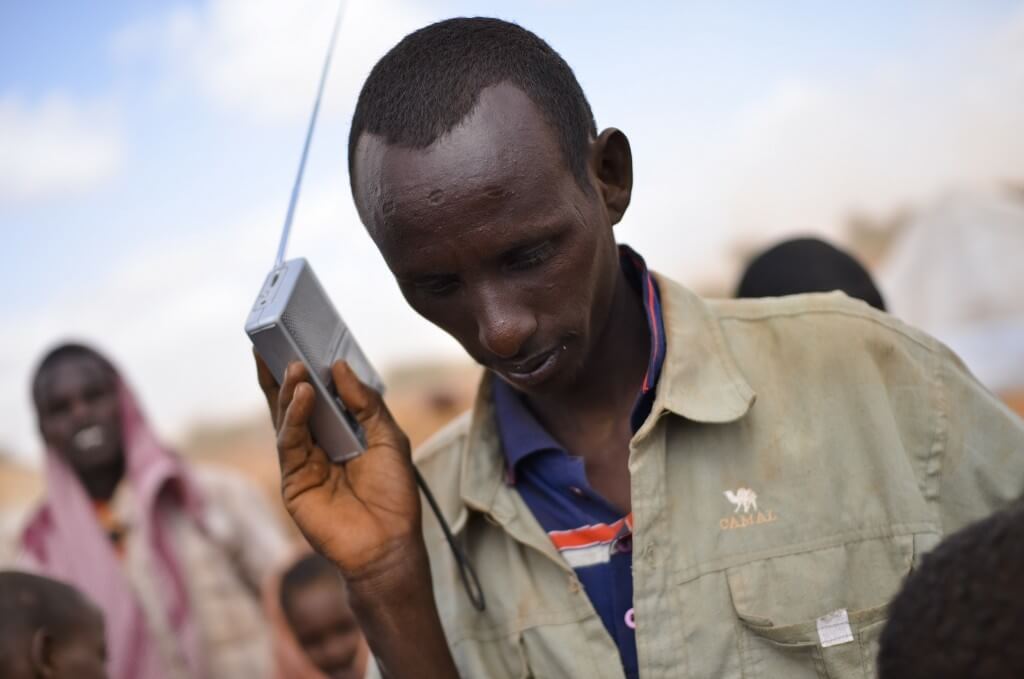Wherever we live in today’s world, information and communication technologies increasingly influence and impact our human lives, our Christian witness, and our Christian ministries. The varieties of local, global, and “glocal” media messages provide complex contexts for the task of making the case for the truth of Christ in the 21st century. The missional issues related to media engagement are therefore of real significance to the global church.
Engaging the globalized media
In the midst of changing technologies and global differences, it is possible to discern five central features of contemporary media:
- Digitalization: The Internet is gradually becoming the most significant platform for media research, networking, and publications, resulting both in convergence of old media formats and genres and creation of new media arenas.
- Democratization: Increasing access to new digital publication channels and new arenas of social media creates numerous possibilities for wider participation and networking.
- Fragmentation: The dramatic increase in media arenas, participants, and voices creates both a fragmented public discourse and a fragmented private consumption.
- Globalization: Through the global spread of information technology, new platforms for media distribution are being established, such as broadband, satellite, and mobile technologies.
- Pluralization: Wherever technology goes, media goes, and with the media comes a plurality of values, perspectives, and worldviews.
These key features illustrate the urgent need to engage more intentionally with media in all its diversity. Media is the primary means by which news, ideas, and stories spreads. It affects every part of society in every part of the world. Therefore, if we are to “bear witness to Jesus Christ and all his teaching in every nation, in every sphere of society, and in the realm of ideas” (The Cape Town Commitment), we cannot neglect the fascinating and complex world of the media.
Media engagement as a Lausanne theme
 It is evident from foundational documents from global congresses and consultations that media engagement has been a Lausanne theme from the very beginning. As a term, media has historically been used to include electronic and print media (but usually not literature), whereas the term more recently naturally also includes digital/new media.
It is evident from foundational documents from global congresses and consultations that media engagement has been a Lausanne theme from the very beginning. As a term, media has historically been used to include electronic and print media (but usually not literature), whereas the term more recently naturally also includes digital/new media.
The contexts for the explicit mentioning of media as well as the specific media emphases have varied in the three foundational congress documents:
- The Lausanne Covenant included “the mass media” in the paragraph on evangelistic partnership, with an emphasis on the legitimacy of specialist media ministries.
- The Manila Manifesto mentioned “media” in the section on the whole world, with an emphasis on the necessity of a discerning engagement with media as part of modernity.
- The Cape Town Commitment included “truth and the globalized media” in the section, “Bearing witness to the truth of Christ in a pluralistic, globalized world”, with an equal emphasis on three major areas of concern. These three media foci are media awareness, media presence, and media ministries.
Media is the primary means by which news, ideas, and stories spreads. It affects every part of society in every part of the world.
Media awareness may be seen as the need for more faithful discipleship (including both personal holiness and disciple-making) when encountering media messages. This area of concern was implicit in the early years of Lausanne, but became later increasingly explicit as cultural and ethical critique. It has recently been given an essential role as a combination of educational, evangelism, and discipleship concerns.
Media presence may be seen as the need to enter mainstream media with professionalism and Christian integrity. Such a focus was implicit in the first phase of Lausanne history, but has later become increasingly significant. Part of the reason is the growing emphasis on the workplace as an arena for ministry and witness. However, it is also due to an increasing acknowledgment of the influential role of mainstream factual and fictional media both in expressing and shaping identities and ideas.
Media ministries may be seen as the need to use every kind of media technology (whether old or new) to communicate the gospel of Christ in the context of a holistic biblical worldview. This area of concern has played a central role throughout the Lausanne history, with a recurring emphasis on specialist ministries, whether in radio, television, print, Internet, or new (social) media.
Missiological foundations for media engagement
Theologically, we should view professional media callings as part of God’s cultural mandate and of his mission to our world. In the words of The Cape Town Commitment: “We love God’s world, we love God’s word, and we love God’s mission.” This opens up space for ministry in a wide range of media contexts and with an equally wide range of professional media roles.
Missiologically, we should view media engagement as an essential part of calling the whole church to take the whole gospel to the whole world:
- Taking the whole gospel to the media world includes taking “the story the gospel tells, the assurance the gospel brings, and the transformation the gospel produces”. This biblical gospel of Jesus Christ is “good news in a world of bad news”, offering both forgiveness and hope and a new worldview perspective.
- Involving the whole church in media engagement includes the recognition both of special gifts and of the ministry of all believers. This is related to the new arenas and opportunities represented by the globalization and the democratization of media.
- Reaching out to the whole world presupposes media engagement, whether this is related to “every nation”, “every sphere of society”, or “the realm of ideas”. Contemporary media – in all their variety – are arenas and avenues of pluralism, including secular worldview perspectives.
From the standpoint of apologetics, we should view media engagement as a dimension of our witness to Jesus Christ as “the truth of the universe”. This includes bearing witness to the fact that “truth in Christ is (i) personal as well as propositional; (ii) universal as well as contextual; (iii) ultimate as well as personal”. Therefore, we need to encourage and equip Christian media professionals to commend such central truth claims as both credible and plausible.
Three major emphases for media engagement
As mentioned above, The Cape Town Commitment identifies three major emphases for our media engagement: media awareness, media presence, and media ministries. It is now appropriate to outline how these three concerns constitute a strategic approach for media engagement.
1. Media awareness: A forgotten dimension in mission
Equipping individuals, families, youth ministries, and churches to engage with media messages at these deeper worldview levels is largely a forgotten dimension of mission, both in the global north and the global south.
Those of us who live in technology-rich places are all media consumers. Those who live in other parts of the world are being increasingly exposed to media messages. These factual and fictional messages are influenced by various secular and religious worldview perspectives, whether in terms of ethical values, views of humanity and reality, or fundamental faith-commitments.
Equipping individuals, families, youth ministries, and churches to engage with media messages at these deeper worldview levels is largely a forgotten dimension of mission, both in the global north and the global south. We need to change that together – and to do it quickly and appropriately. Such equipping includes research, resources, and practical training in worldview analysis of media messages, as well as showing the credibility and relevance of a holistic biblical worldview over against alternative worldview perspectives.
2. Media presence: A calling to public witness and integrity
There is a wide variety of legitimate and strategic media roles to explore within the general media world for talented Christians. Journalism and documentary work reveals neglected facts, stories, and angles, which enables a more balanced public and private debate. Creative and entertainment media can present new and fresh ways of imagining Christian truths, which may generate genuine interest in significant moral and spiritual issues. Through the presence of skilful Christian commentators and apologists in mainstream media, the credibility and plausibility of the gospel and of a holistic biblical worldview may be commended to sceptics, seekers, and to Christians.
3. Media ministries: A ministry for all believers
Effective use of every kind of media technology, format, and genre is important for worldwide evangelism, for discipleship, and for faith education. Specialist media ministries still have legitimate and strategic roles to play, but new media technology potentially changes every single mission organization, youth ministry, and local church into media outlets. This creates an increasing need for evangelistic partnerships in the whole area of media. At the same time, we need to explore the way that social media creates increasing possibilities for a media ministry for every believer.
Media engagement in mission strategies
There is thus every reason to urge Christian leaders globally to intentionally integrate media engagement in their strategies for mission in the 21st century.
In light of this, leaders are urged to reflect on and to collaborate in:
- Media awareness: How can the church in your country equip and resource Christians to engage critically with, and respond constructively to, all forms of media?
- Media presence: How can the church in your country affirm, equip, support, and learn from Christians who work and participate in the mainstream news and creative media?
- Media ministries: How can the church in your country equip individuals, churches, Christian organizations, and institutions to become effective in using media, including social media, for communicating truth?
Share this Post
Photo credit: © Paul Keller. Used under a Creative Commons (CC-BY-2.0) licence.




